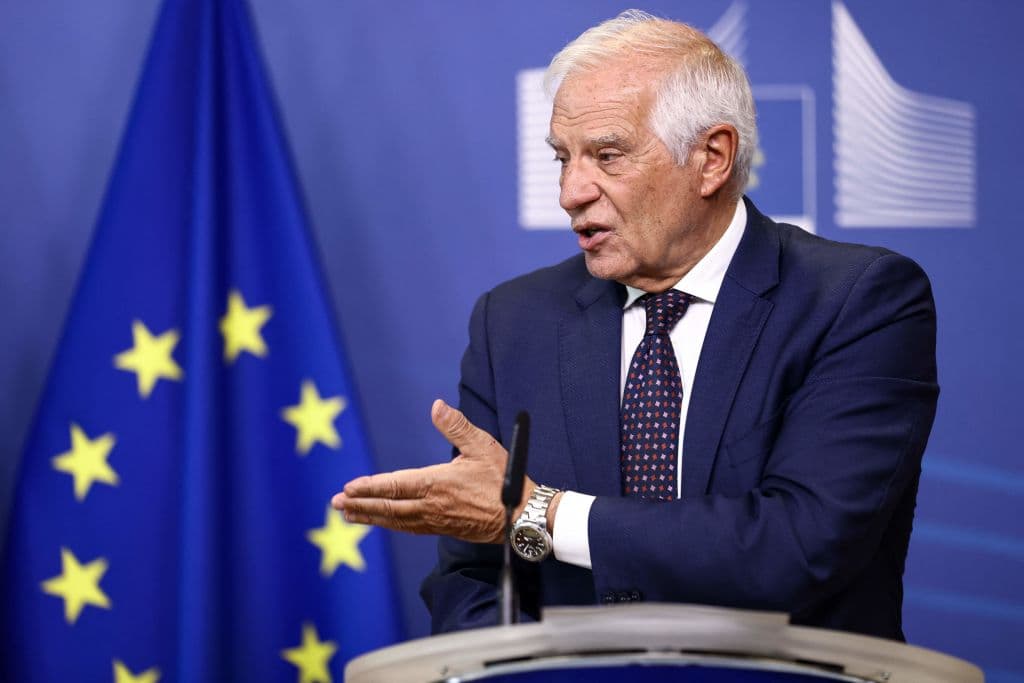Svitlana Romanko: To sink Russia, EU sanctions must target global shipments of Russian fossil fuels

The opinions expressed in the op-ed section are those of the authors and do not purport to reflect the views of the Kyiv Independent.
Delivering her State of the Union Address last month, European Commission President Ursula von der Leyen was frank about Europe’s failures.
Europe has failed to adequately address the threat from Russia, failed to act against disinformation and agents of influence within its borders, and failed to apply the lessons learned from the 1970s energy crisis by diversifying its sources.
Von der Leyen boasted that the bloc has responded to Russia’s full-scale war of aggression with the “toughest sanctions the world has ever seen.”
But left unacknowledged was the fundamental flaw in the EU’s sanctions against Russia: in their current form, they remain unenforced.
The facts are grim. As of Aug. 24, the EU has spent at least 85 billion euros ($83 billion) on Russian fossil fuels since the full-scale war began – far outweighing the value of military support it has given Ukraine.
Before Russia’s recent mobilization, Moscow was estimated to have been spending roughly $876 million per day on the war. This means that now, over 200 days into the war, European money has made up a significant proportion of Putin’s war chest.
The Institute of International Finance reported in August that 55% of total tanker capacity exporting from Russian ports is carried by Greek-owned ships, which fall under EU rules and regulations.
The institute’s analysis was curt. In order for a price cap on Russian oil to have its desired effect, “Greece needs to be persuaded, or forced, to stop working with Russia.”
Meanwhile, a report from the Center for Research on Clean Energy and Clean Air (CREA) found that: “Out of ship capacity carrying Russian fossil fuels in July, 62% was owned by EU shipping companies and 73% was insured in the U.K. and Norway.”
With yet more evidence of EU countries facilitating coal exports from Russia, it’s evident that Europe has a sanctions regime in name only. One Ukrainian official, Economic Advisor to President Volodymyr Zelensky Oleh Ustenko, has gone so far as to describe the EU’s half-hearted efforts as “phantom sanctions” that have had no real effect thus far.
Despite the European Parliament calling for a full, immediate, and effective embargo back in March, EU member states hesitated and attempted to carve out exemptions to allow continued business with Russia’s oil and gas sector.
It’s now clear that this was a costly mistake.
What did the EU communicate to the Kremlin, even as invading Russian troops infiltrated the outskirts of Kyiv? That Europe still needs what Russia is selling and is willing to pay as much as it takes, regardless of ongoing brutal war crimes.
For Ukrainians, that payment came in the form of people tortured, lives lost, and homes destroyed. Millions of our compatriots are scattered across Europe, our country’s infrastructure is shattered, and whole cities have been razed to the ground.
But as Ukraine faces its bleakest winter since World War II, Russian exports are transported by our allies’ ships.
Every time a Greek ship offloads Russian fuel at a foreign port, the bonds between those countries and Russia are strengthened. Financially, militarily, economically, and geopolitically, the phenomenon of European ships carrying Russian fuel exports makes a mockery of everything the EU is supposed to stand for.
This can’t go on. Every cent spent on Russian fuel, every European ship loaded up on coal, gas, and oil at Russian docks is prolonging the war.
In the last two weeks, Putin has shown he is desperate. Wild nuclear threats and shambolic and unpopular mobilization are signs of a dictator who is running out of options. Suspected sabotage of pipelines may be the last gambit.
Meanwhile, the advances of Ukrainian troops in Kherson and Kharkiv oblasts have given the Ukrainian people hope that victory could be within reach.
One of the biggest reasons the Russian people have so far supported Putin is that he offered stability and subsistence, largely garnered by selling fossil fuels. This social contract is starting to break down.
In Putin’s beloved hobby of judo, combatants win by turning their opponents’ weight and strength against them. By putting an end to Russia’s fossil fuel exports, we can turn Russia’s last remaining strength into Putin’s fatal weakness.










